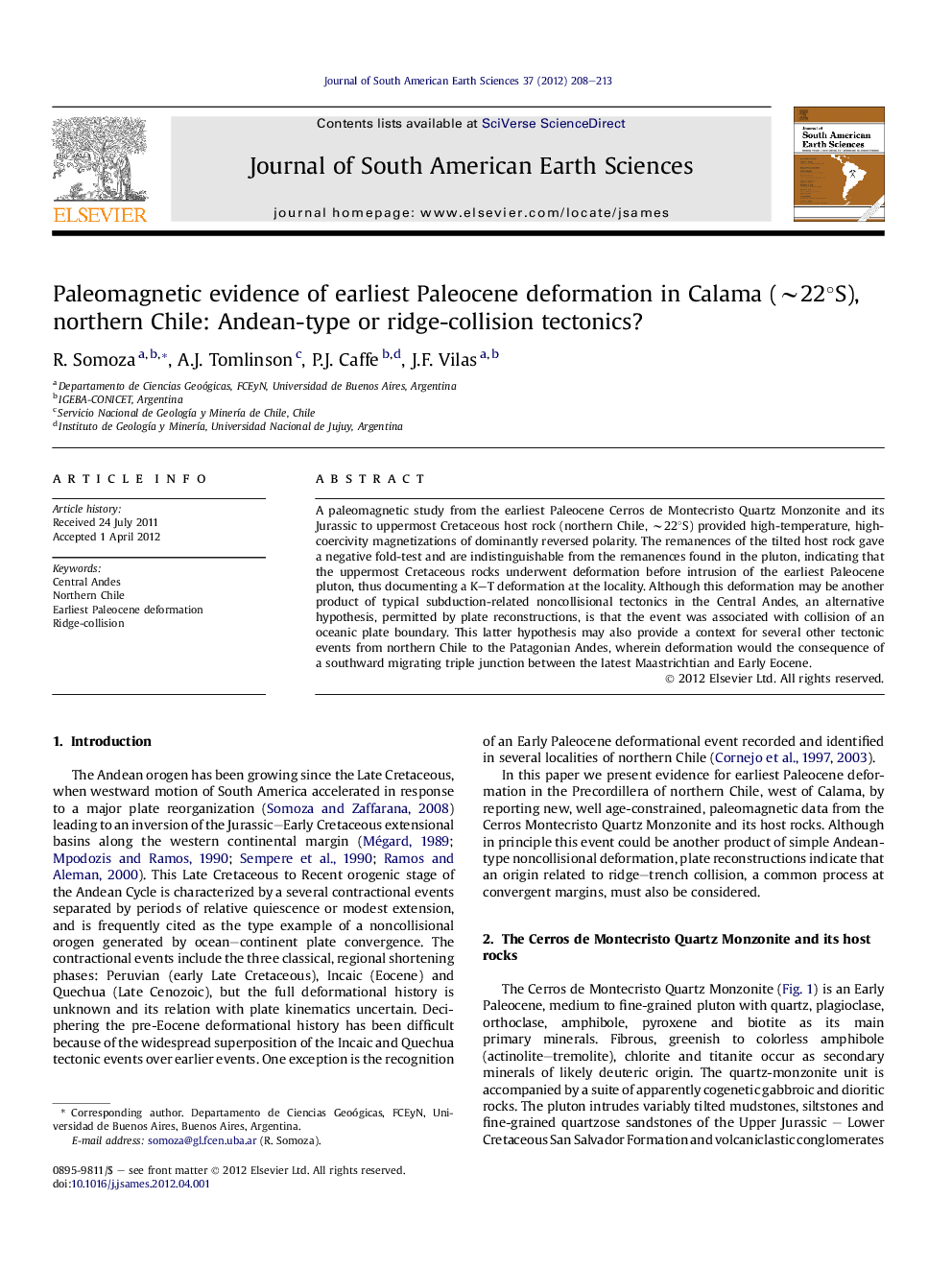| کد مقاله | کد نشریه | سال انتشار | مقاله انگلیسی | نسخه تمام متن |
|---|---|---|---|---|
| 4682551 | 1635172 | 2012 | 6 صفحه PDF | دانلود رایگان |

A paleomagnetic study from the earliest Paleocene Cerros de Montecristo Quartz Monzonite and its Jurassic to uppermost Cretaceous host rock (northern Chile, ∼22°S) provided high-temperature, high-coercivity magnetizations of dominantly reversed polarity. The remanences of the tilted host rock gave a negative fold-test and are indistinguishable from the remanences found in the pluton, indicating that the uppermost Cretaceous rocks underwent deformation before intrusion of the earliest Paleocene pluton, thus documenting a K–T deformation at the locality. Although this deformation may be another product of typical subduction-related noncollisional tectonics in the Central Andes, an alternative hypothesis, permitted by plate reconstructions, is that the event was associated with collision of an oceanic plate boundary. This latter hypothesis may also provide a context for several other tectonic events from northern Chile to the Patagonian Andes, wherein deformation would the consequence of a southward migrating triple junction between the latest Maastrichtian and Early Eocene.
Figure optionsDownload as PowerPoint slideHighlights
► Paleomagnetic results indicate the occurrence of latest Cretaceous to earliest Paleocene deformation at Calama.
► Rather coeval deformation has been reported in other localities of northern Chile.
► Plate tectonics admits a southward migrating TJ in Chile between latest Maastrichtian and early Eocene.
► The reported K–T deformation could be the product of either Andean-type deformation or collision of intraoceanic plate boundary.
Journal: Journal of South American Earth Sciences - Volume 37, August 2012, Pages 208–213